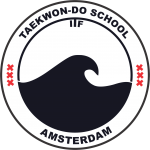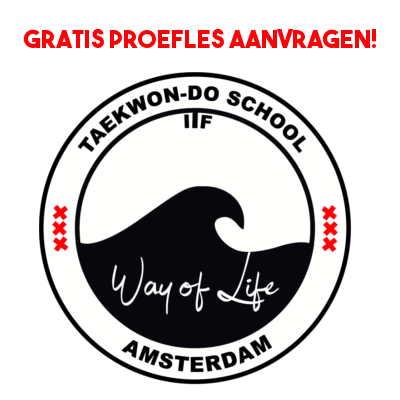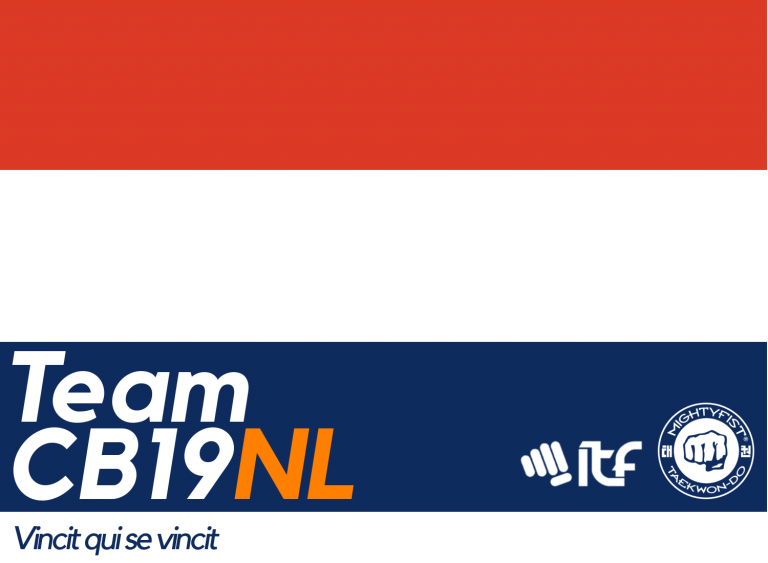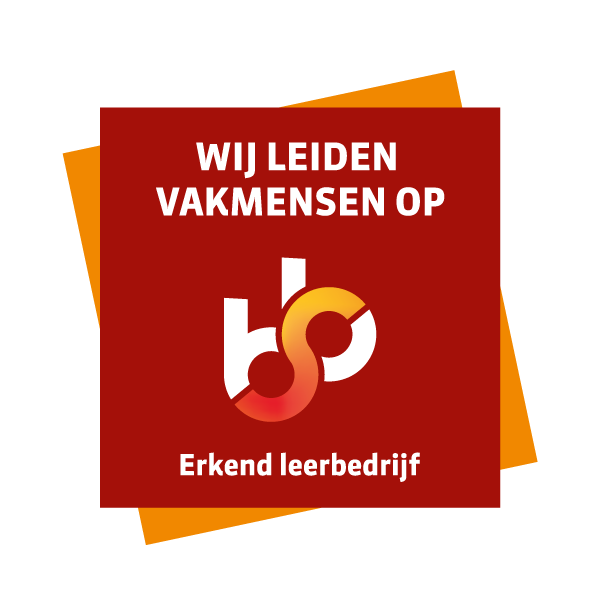ITF International Coaches’ Conference
LIMERICK, 30.06.2019 – The ITF International Coaches’ Conference (ICC) is a brand new ITF concept that has been brewing for a while. The much anticipated event had set high expectations with an A-list line-up of interesting speakers and coaches. With topics like Performance Management, Video & Data Analysis, Performing under Pressure, Setting up a World Class Coach Education System, and many more interesting lectures and training sessions, we were in for a treat. After a weekend of inspiration and sharing knowledge we can say: the expectations were met and we’re hungry for more!
1st ITF International Coaches’ Conference
The first announcements came through months before. Grand Master Bos had teamed up with two clever Irish lads, Sabums Adrian Byrne and Stephen Ryan. Next level stuff was up on the agenda. After the storm that was the first proper elections for our ITF – a great step forward for the organization – the ICC came back into focus.
More speakers and trainers were revealed. Academic specialists (e.g. on biomechanics, sports psychology, nutrition), next to ITF experts (on competition rules, and all competition disciplines). Well known names (Masters Barada, Triqui & Cooley, Sabums Farigu, Doulay), but also coaches that are not as much in the worldwide spotlight, like Sabum Andreas Jenstad, the Norwegian patterns coach, who is working magic up there (and we always wonder how they do it). As knowledge is everywhere, the organizing committee invited WAKO (Kickboxing) President Roy Baker over for both a keynote speech and a training workshop.
The Dutch
Of course, honorary ITF Netherlands member Grand Master Wim Bos was there as head of the organizing committee. Master Coos van den Heuvel was one of the keynote speakers (with his ITF Tournament & Umpire Committee colleague Master Gordon Wallace). Master Willy van de Mortel visited the conference as representative of the Norwegian coaching team. Sabum Randy Brouwer (In Nae Do Kwan) was our travel companion. And by “we”, I mean Sabum Wouter Meijer (Secretary ITF Netherlands) and myself, Jair Stenhuijs (Treasurer ITF Netherlands).
The Arrival
Straight out of Dublin Airport the adventure started: driving on the left and a couple of huge roundabouts definitely cleared the fog in our heads from the flight. Due to a backed up highway, the trip took quite a bit longer than planned, but finally we arrived at the beautiful campus of Limerick University. Connected via an aesthetically pleasing “living bridge” over the Shannon river, the university facilities and student residencies are spread out in a beautiful green, sun soaked landscape. After the registration we enjoy a refreshment on the terrace of the campus restaurant, watching an impressive sunset.
Coach Development Programme
The energy in the lecture hall was buzzing on Friday morning, the first day of the conference. Good vibes, full of anticipation, international. A clear “Good morning everybody!” from GM Bos set us off for the day. Of course ITF President GM Paul Weiler was invited to do the official opening speech, followed by GM Bos himself, and then Master Kenneth Wheatley, president of the Irish federation.
Hayley Harrison (MSc.) gave us a look into the intricacies of building up an infrastructure for coach development. It is good to stress that the Dutch interpretation of a “coach” is a different one than what is meant in this context. The coach we we’re talking about today, and this whole conference weekend, is more than a sports coach and/or an expert on Taekwon-Do matters. It is about teaching skills and methods and knowing how the learning process works, understanding the psychology of different age and gender groups, physical development, and much more.
A good coach doesn’t just “happen”. Once a potential coach is identified, he or she needs to be trained, supported progressed and tracked. If an organization like the ITF aspires a solid future, basically we need to keep our finger on the pulse of a well designed process that enhances the transferability of coaching skills, quality assurance, accountability and credibility.
A good coach education programme is the result of an iterative process. Once the structure is decided on (what qualifications? what specialisms? coach support?), the content is produced, a toolbox of methods is deployed and ways of delivery are set (standardize where possible, diversify where needed: people, their capacities, the context, and the environment everything takes place in are all variable), the whole infrastructure is evaluated periodically in order to establish incremental improvements.
Needles to say this endeavor takes a long term vision to materialize.
Within ITF Netherlands we’re on the right track with our coach training programme (the “ITF Taekwon-Do Sportleider” course, as we call it), but there are still some nice challenges ahead of us! This first keynote speech surely set the bar of this first International Coaches’ Conference.
Coaching Kids
A specialization within coaching is the coaching of children. As a coach, you impact more people in a year than most people in their whole life. Let that sink in. This is a quote that came by on one of the slides of Declan O’Leary from Sport Ireland, an agency under the Irish Department of Transport, Tourism & Sport. In Taekwon-Do we are well aware of the benefits of physical activity of children, hence initiatives like the ITF Kids Development Programme.
The Irish government has taken things a serious notch up. A partially EU-funded open project generates a wealth of information and practical tools for coaches to really cater to the needs of children (children are not mini-adults), and creating a child-centred environment.
Every coach should know this, but the pledge that was shown on the last slide summed it all up: be child-centred, holistic and inclusive; make it fun and safe; prioritise the love for sport above learning the sport; focus on foundational skills; engage parents positively; plan progressive programmes; use different methods to enhance learning; and finally: use competition in a developmental way. It’s that last one that we could take into consideration a bit more. One of the many thoughts that stuck with me, after the International Coaches’ Conference.
Biomechanics, Plyometrics & Special Techniques
Professor Drew Harrison gave us a quick “how to bluff your way into biomechanics” update, a model of what determines how high you can jump, a birds-eye view of how explosive power works, followed by a fantastic comparison of special techniques and the evolution of the high jump (athletics) – and what factors contributed to those improvements. Many of us in the lecture hall came out with a lot of creative ideas.
Not long after that, we could start putting some of those ideas into practice during the plyometrics workshop. We were introduced to a few of the endless plyometrics exercises to give us an idea. Then it was time to think: how would we apply plyometrics to a given problem? Many jumps later, all the groups chalked down an impressive amount of solutions on their whiteboards.
In the afternoon the theme concluded in actual special techniques, with Sabum Adrian Byrne and the professor. With new eyes (and slow motion video) we analyzed a couple of techniques and tried to improve the jumps from our recently discovered scientific perspective. This structured way of taking a subject from theory into practice is exemplary of how well the International Coaching Conference was put together.
Sparring, Patterns & Pre-Arranged Sparring
Sparring was the domain of Masters Cooley, Triqui and Barada. In three workshops over the weekend these outstanding coaches were going to introduce us to their way of staying at the cutting edge of competitive sparring. With the animal flow drills we could experience how body awareness and (core) strength can be trained. And with many, many technical and tactical drills, we learned to see through the eyes of these coaches. Also, we did a lot of sweating… We hope there’s more time to discuss tactics and training methods at the next International Coaches’ Conference, because a side-by-side comparison of such high level coaches could open up a box of treasures.
In the patterns workshops Sabum Andreas Jenstad spilled the beans on a neat little trick the Norwegians have been training on, to get that snappy edge over their competitors. It is impossible to put it into words, you just have to do it! Supported by a ton of video evidence from his tablet, we started to see it. And it yielded as much admiration as discussion in the room, as we guess it will always do, if it’s not literally in the encyclopedia 😉
Sabum Lylian Doulay explained his take on preparing for important tournaments. A big surprise might be that he doesn’t focus all that much on doing patterns (they must be coded into his DNA by now), but more on bringing his body in top shape to perform. Sabum Silvia Farigu walked us through her methods of training patterns for the highest level, with some good tips on specific moves. During the kicking workshop we delved into the training methods to tweak the explosivity of our kicks. Yet another great example of what this International Coaches’ Conference stood for: candid sharing of ideas and good practice.
During the pre-arranged sparring workshop, Grand Master Wim Bos and Sabum Silvia Farigu explained their process for putting together a routine. The GM talked about how this discipline ended up in our tournaments. The General was not a fan, but the people loved it. So after an awkward situation at a certain tournament, it could stay. We also discussed what we liked and would like to see differently in pre-arranged sparring. There were calls for more “realism”, but what that entailed depended on who was talking. Apparently throws were game, as they are in the encyclopedia. This brought us to the rules: umpires are a diligent people. Are truly exciting performances stifled by the coolness vs. “clicks” trade-off?
The Future of ITF Competition
More about rules and the giant feat that is organizing a multi-day tournament for hundreds or thousands of competitors, coaches, umpires, supporters, volunteers, VIP’s, sponsors, and what more: that’s what Masters Coos van den Heuvel and Gordon Wallace (from the ITF Tournament & Umpire Committee, TUC) were there to talk about. Of course this was a keynote speech and workshop during this ITF International Coaches’ Conference.
Their core business is to make sure the umpires score well. It is their holy mission. As competitors and their coaches prepare for months, the least you can do is put together a well prepared umpire team. This is what the International Umpire Courses (IUC) are for: quality assurance through training umpires and bring them up to speed with the latest developments.
Their number two concern is to make sure our World Championships run smoothly, on time, within budget. This is why we all received an elaborate questionnaire to gauge our opinion on a number of competition-related topics. Master Coos stressed that every decision has consequences. Stop time while giving a warning? Splitting up the juniors and the seniors into different tournaments? It all comes with benefits, and also costs. The group was divided in different teams in order to dig deeper into questions like these. It was great fun to debate with people from all over the world on matters you don’t really consider that much. The results will be presented soon, so we’re looking forward to that.
Cutting Weight
A hot topic in competition is the weight cut. As research on this topic keeps on growing, there are more and more scientific papers to delve into. So no excuse to take random advice from dodgy websites or tips from glossy magazines, full of sponsored articles: get yourself informed.
The presentation took us through acute vs. chronic weight cutting, factors to consider before making a weight cut, rapid weight loss methods (the good, the bad and the ugly) and general nutrition. It was very to-the-point and gave us a good idea on how to tackle this issue in a responsible way. It is one thing to make the weight, it is another to still be able to recover and perform.
Performance Psychology, Planning & Analysis
When you see “psychology” on the workshop schedule, you don’t really expect to feel the burn. But we did. Roy Baker (multiple WAKO champion himself) not only talked about the mental stuff, but gave us exercises to experience them. In the gym, everybody is a champ, because there is no real stress (most of the time). At the World Championships, every second counts, the adrenaline creates tunnel vision and drains your energy, focusing is a bit harder, and you still have to be able to listen to your coach while the supporters roar and kicks and punches are flying at you. This summarizes the progression we went through. An easy “movement and attack” drill evolved into a war zone. You had to stay technical, focused, calm and follow up directions, while the chaos was turned up.
Mr. Baker shared his rituals to get himself into the game (which gave the crowd goosebumps), or snap out of negative mental loops – and we were encouraged to share our rituals. He also shared his visualization exercises – he had one for each of his main rivals. Of course everybody got a chance to put themselves into such a situation mentally, and practice their visualization ritual.
In the keynote speech we continued with performance planning, also with Mr. Baker. The planning process starts with establishing a performance profile of the competitors: where they are now, where they want to be – in detail. We practiced this ourselves with the so-called “spider web model”, that covered all the relevant dimensions of performance of a ITF competition discipline of our own choosing. From there, a coach can start planning the process that should lead to said transition.
Besides the physical, technical and tactical aspects, of course there are the psychological aspects to competition. Winning is largely about good decision making under pressure. If your mental make-up is off, you will not perform (“you are what you think you are” was a line that kept on coming back during this presentation). How to make that work was put into a model that mapped all psychological techniques necessary to develop the essential psychological skills, in order to realize a set of objective requirements for world class performance.
In the performance analysis workshop, Sabums Adrian Byrne and Andreas Jenstad opened up about their data-driven methods for creating a competitive edge for their athletes. We learned how the Norwegian team uses video analysis efficiently to their benefit, and how the Irish uses statistics to their advantage and booked drastic improvements.
ITF Family
On Saturday evening we all enjoyed a barbecue with our ITF family. And that really was the feeling during the whole weekend: we are a family, tied together by our passion for Taekwon-Do. A family to be proud of. A family that is not afraid to think ahead, share knowledge, and work together towards the future. As far as we’re concerned, the International Coaches’ Conference is here to stay!
This article was written by Jair Stenhuijs for ITF Netherlands. Cover photo by Norbert Érseki (The TKD Reporters).








